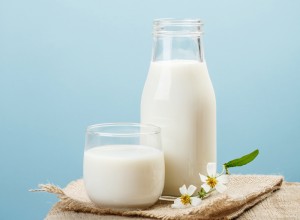Nutrition expert Vic Coppin said: “The best way to have a positive impact on mood through food is to eat a balanced diet that includes a variety of food groups and plenty of vitamins and minerals, which will ensure you’re getting the right nutrients, to promote better emotional patterns.”
Dietitians say the best brain-boosting foods are fatty fish like salmon, dark chocolate, bananas, oats, berries, beans, and lentils.
Ms. Coppin said: “Vitamin B is a core micronutrient that can be added to your diet every day to boost brain function and help improve your mood.

“You can find this vitamin in sources like dairy, eggs, red meat, poultry, fish, and some dark green leafy vegetables.”
She added that it is best known for the vitamins we can get from sunlight, and also recommends a daily intake of vitamin D.
“You can also find vitamin D in some food sources, such as egg yolks, salmon, sardines, and cod liver oil, as well as some vitamin D-fortified plant-based milk and yogurts,” says the nutritionist.
“In the UK, we’re all advised to take 10 micrograms a day throughout the winter, and in summer if you’re indoors a lot.
“I’ve seen an improvement in my clients’ mood before starting daily vitamin D supplements, so it’s definitely something to consider.”

“Vitamin B12 and other B vitamins play a role in producing brain chemicals that affect mood and other brain functions,” says the Mayo Clinic.
“Low levels of B12 and other B vitamins, such as vitamin B6 and folic acid, may be associated with depression.”
It added that no supplements can replace proven depression treatments, such as antidepressants and counseling.
The organization states: “The best way to ensure you’re getting enough B12 and other vitamins is to eat a healthy diet that includes sources of essential nutrients.
“Vitamin B12 is abundant in animal products such as fish, lean meat, poultry, eggs, and low-fat and non-fat milk. Fortified breakfast cereals are also a good source of B12 and other B vitamins.”
“During autumn and winter, you need to get vitamin D from your diet, as sunlight isn’t enough for your body to make it,” the NHS said.
It states: “From late March/early April to the end of September, most people can make all the vitamin D they need with sunlight on their skin and a balanced diet.”

The NHS added: “Taking too many vitamin D supplements over a long period of time can cause too much calcium to build up in the body (hypercalcemia). This can weaken bones and damage the kidneys and heart.
“If you choose to take a vitamin D supplement, 10 micrograms per day is sufficient for most people.”
The health agency also says that diet does affect your mood. It explains: “Making healthy choices about your diet can make you feel emotionally stronger. You’re doing something positive for yourself, which boosts your self-esteem.
“Eating well also helps your brain and bodywork efficiently. Aim for a balanced diet that includes all major food groups.”
Post time: Apr-20-2022




